
Recent Reviews by Anuj Kumar
The Hindu

Anuj Kumar is a senior film critic with The Hindu. He has written extensively on Hindi film trends, conducted interviews, and contributed nostalgia pieces. He has contributed to Housefull (Om Books), a collection of short essays on films made during the Golden Age of Hindi cinema.
Films reviewed on this Page
Khakee: The Bengal Chapter
My Melbourne
Inn Galiyon Mein
The Diplomat
Nadaaniyan
Crazxy
Superboys of Malegaon
Sthal (A Match)
Chhaava
Loveyapa
Khakee: The Bengal Chapter
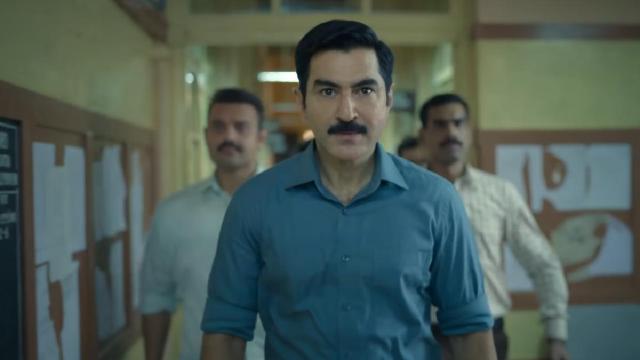
Cop onslaught in the red and green bastion feels contrived
Some sharp twists and dramatic turns by Prosenjit Chatterjee and Saswata Chatterjee can’t salvage this reductive exploration of gore and grunge in Bengal
A good student of cinema, creator Neeraj Pandey keeps revising chapters that eulogise the exploits of men in uniform and fatigues. This is a syllabus where he scores well. After an engrossing Bihar file that took us to the vortex of caste and crime in Bihar, Pandey and his creative team travel further east to open a window on the games politicians play for power in West Bengal. Barun Roy (Prosenjit Chatterjee), a powerful politician and businessman, uses criminals and policemen to remain ahead of the opposition, led by Nibedita Basak (Chitrangada Singh). Ganglord Shankar Barua (Saswata Chatterjee), who has risen from poverty to gain popularity among the deprived, does a dirty job for the kingmaker. However, in the politics of fear, Baruah alias Bagha loses control over his den when his two enterprising acolytes, Sagar (Ritwik Biswas) and Ranjit (Adil Khan), let their egos and ambition get the better of them and they shoot down two police officers. To clear the mess, Roy brings in an honest police officer Ajay Mitra (Jeet) for whom ends are more important than means. But, as expected, the plan backfires.
All 12 reviews of Khakee: The Bengal Chapter here
My Melbourne

‘Setara’ shines in this otherwise insipid multigrain recipe
Directed by Onir, Imtiaz Ali, Rima Das, and Kabir Khan, the anthology weaves together four tales recognising the inclusive culture that the Salad Bowl of Australia promises to uphold
Celebrating the cultural ethos of a city through an anthology is not a new cinematic concept. Over the years, we have watched films etching the spirit of Paris, Tokyo, and Mumbai on celluloid. This week, we have some distinguished names from the Indian film industry collaborating with Australian talent to mark the cultural diversity of Melbourne. Known for their distinct idiom, Onir, Imtiaz Ali, Rima Das, and Kabir Khan map the themes of sexuality, disability, gender, and race, gently emphasising the inclusive nature of the city. Based on real-life stories, the protagonists’ truth touches the emotional buttons without necessarily triggering a wave of reaction. Perhaps the format limits the creative souls from taking leaps of faith and deepening the conflict as in the short form, sometimes the goal becomes more important than the means. The denouement starts knocking at the door before the journey is fully realised.
All 2 reviews of My Melbourne here
Inn Galiyon Mein
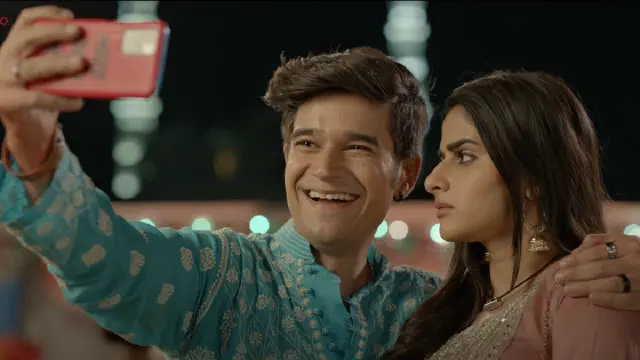
In the lanes of love and tolerance
Avinash Das’s tribute to the spirit of India makes a timely and touching statement
Sometimes, the timing of a film’s release makes it special. A few years back, Inn Galiyon Main would have been dubbed dated for repeating the obvious. Today, its theme is here and now. Mostly, social values inform a film, but sometimes, a social churn leads to a creative outpouring. At a time when festivals and cricket matches have become a stick to browbeat a community, Inn Galiyon Main celebrates Holi and Eid at a space where Hanuman and Rahman Gali coalesce in Lucknow. An ode to the syncretic culture that has almost been reduced to a slur in hate-filled narratives on social media, the film exposes the divisive politics fuelled by cheap data with a poetic parable.
All 2 reviews of Inn Galiyon Mein here
The Diplomat
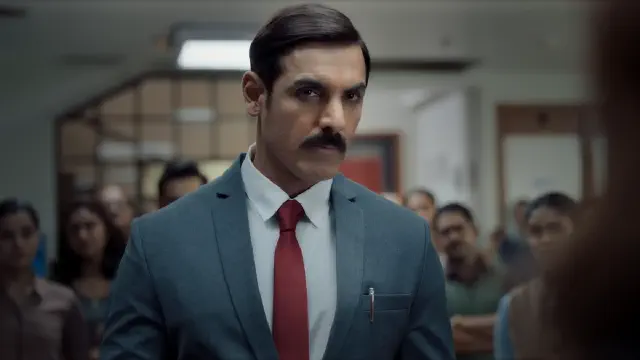
Diplomacy for Dummies
Despite strong performances by John Abraham and Sadia Khateeb, sketchy characterisation and lack of detail derail this ‘true’ story
In 2017, Uzma Ahmed made headlines when she was rescued from her abusive Pakistani husband by the Indian High Commission officials under the supervision of the then Minister of External Affairs, Sushma Swaraj. Director Shivam Nair joins forces with actor-producer John Abraham to recreate the diplomatic maneuver from the point of view of diplomat JP Singh, who led the rescue mission to bring the Delhi girl home. However, as it turns out, it is yet another addition to the trend where filmmakers flaunt the placard of ‘based on a true story’ but develop cold feet in digging the truth of the story. It thanks the top of the ministry for support, but it is hard to take a film on diplomacy seriously that can’t differentiate between an embassy and a high commission. It is difficult to root for a nationalist narrative when the makers don’t get the designation of a former foreign minister right.
All 12 reviews of The Diplomat here
Nadaaniyan

Ibrahim Ali Khan’s debut film doesn’t pass the test
Designed to launch Ibrahim Ali Khan into the cinematic stratosphere, the vehicle fails to flatter
A gossamer-thin romantic comedy that comes across as Karan Johar’s latest home assignment for star kids to pass the Bollywood entrance test, Nadaaniyan doesn’t pass muster. Reflecting the armchair sensibility of the Bandra school of filmmaking, the love story strains credibility and tests patience. Its nebulous ideas on education are irritating, and the cultural context of Delhi-NCR is deeply annoying. Moreover, when a dated plot is ploughed by stock characters, it invariably yields meagre returns. Led by debutant director Shauna Gautam, a troika of writers promises to provide insights into adulting. Set in an elite school, the film follows Pia Jaisingh (Khushi Kapoor) as she hires a middle-class student, Arjun Mehta (Ibrahim Ali Khan), as her boyfriend to secure the trust of her BFFs. As they come close, the pretense gives way to a predictable relationship, leading to cosmetic complexities that weigh a few Instagram-worthy reels.
All 19 reviews of Nadaaniyan here
Crazxy
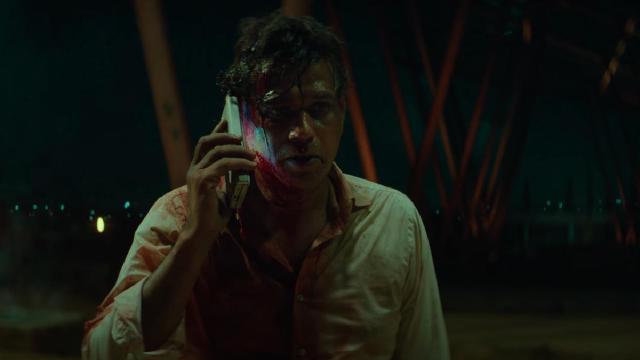
Sohum Shah almost pulls off a blinder
Director Girish Kohli’s moral thriller goes off-road after an adrenaline-filled start
We get so many spam calls these days that it is hard to figure out which ones are real. Then, while driving the car, you listen to FM stations where prank calls drive the programming. Director Girish Kohli employs this odd everyday reality in this thrilling race against time. On the way to the hospital to settle a crucial deal, doctor Abhimanyu (Sohum Shah) gets a mysterious call telling him that his daughter has been kidnapped, and he has time till sunset to save her life. As Abhimanyu presses the pedal, Kohli drops red herrings on the highway. Gradually, we discover that Abhimanyu is an inadequate surgeon and a flawed father.
All 8 reviews of Crazxy here
Superboys of Malegaon
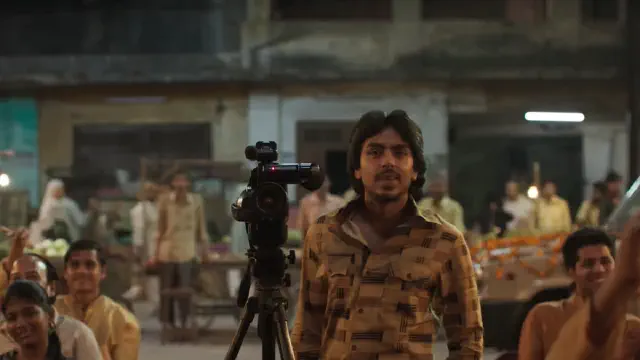
Not too super, much too safe
A strong ensemble, led by Adarsh Gourav, combined with writer Varun Grover’s earnest delineation of small-town cinematic ambitions, make Reema Kagti’s ‘Superboys of Malegaon’ an engaging character study of desi dream merchants
Reema Kagti’s Superboys of Malegaon is the kind of film that is called a crowd-pleaser in the festival circuit and a critic-seeker at the box office. Unraveling like an aesthetically charged, culturally muted performative version of Faiza Ahmad Khan’s acclaimed documentary Malegaon Ka Superman (2008), it sets out to celebrate the true story of a mofussil town’s obsession with cinema, where a wedding videographer’s vision spurs a cottage industry of spoofs of Bollywood classics. Reema and screenwriter Varun Grover expand on the hour-long documentary to explore deep-rooted fragile notions of originality, taste, and class in the realm of creativity. Unfortunately, the film suffers from the same issues that it engages with.
All 14 reviews of Superboys of Malegaon here
Sthal (A Match)
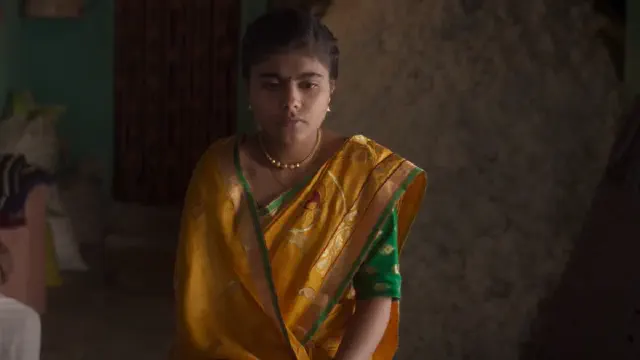
A sharp critique of traditional matchmaking practice
Marked by the natural flair of non-actors, Jayant Digambar Somalkar’s debut Marathi film is a sensitive exploration of organised social hypocrisy
As the world customarily deliberates on a woman’s place in society this week, writer-director Jayant Somalkar shows us the mirror through a deceptively simple take on the patriarchal roots of the traditional matchmaking process and the attendant social churn in our villages. Structured like a coming-of-age story of a village girl struggling to find her way out of the dragnet of gender roles and societal expectations, protagonist Savita’s tenacity and quiet rebellion pierce our consciousness. Seen from a girl’s point of view, Sthal’s scope is not limited to the humiliation a girl and her family endure in finding a suitable match through an arranged marriage. It deconstructs its cultural context, its normalisation, and its consequences. When news pages bring the rise in the number of farmer suicides and the sale of mobile phones in rural Maharashtra into our living rooms, one misses the social pressures and moral conditioning that pushes a peasant to the brink and reduce jobless youth to data.
All 5 reviews of Sthal here
Chhaava
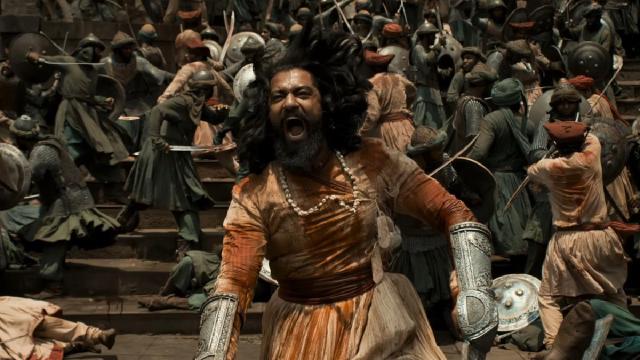
Vicky Kaushal, Akshaye Khanna jostle for attention in this uneven sketch of a Maratha legend
Struggling to choose between history and the current nationalist sentiment, Laxman Utekar’s unsurprising narrative finds its voice in the final act
Based on Shivaji Sawant’s popular novel, Chhaava is a puff piece on Maratha warrior Chhatrapati Sambhaji, who took on the might of Mughal emperor Aurangzeb for around eight years in the 17th Century. Carrying forward the defiant approach of his father Chhatrapati Shivaji, he kept Aurangzeb occupied in the Deccan during the second half of his reign, inflicting heavy damage on his humongous army and pride with his unmatched valour and guerilla tactics before being betrayed by his brother-in-law. Historians may not have been generous to the shooting star but, over the years, Sambhaji has acquired an almost divine status in Marathi cultural space. In recent years, at least three Marathi films portrayed him as someone who laid down his life for the Hindu faith. Director Laxman Utekar carries forward the narrative. Early in the film, when Sambhaji maims a lion, it becomes clear that it is going be a literal cinematic depiction of Calendar art by Utekar, who started his career as a cinematographer. When Sambhaji saves a Muslim child amid a battle — and a few reels later, Mughal soldiers burn a shepherdess alive — it becomes clear the agenda Chhaava seeks to promote and the emotion it wants to play up. However, when characters start introducing themselves and their intentions like players at the start of a cricket match, one wants to tell Utekar, ‘Zara Hatke Zara Bachke’
All 17 reviews of Chhaava here
Loveyapa
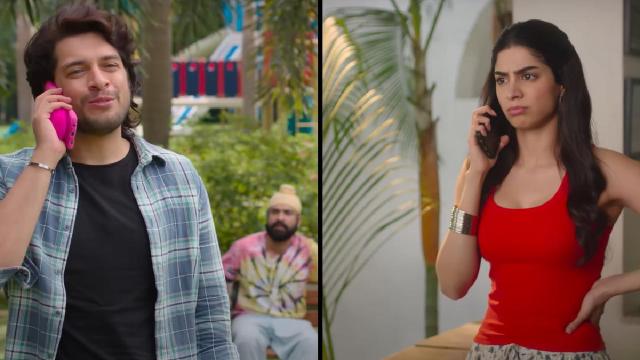
Junaid Khan and Khushi Kapoor toil in this shallow rom-com
Advait Chandan’s take on the ill effects of smartphones addresses a generation that expresses its deepest emotions through emojis
Smartphone is the new villain in love stories. Screenwriters looking for new obstacles for love birds have discovered social evils on the web. After Muddassar Aziz used phone swapping to generate humour in Khel Khel Main, director Advait Chandan recycles the Tamil hit Love Today to create a romantic comedy about the ill effects of social media and artificial intelligence on relationships in Loveyapa. Baani (Khushi Kapoor) and Gaurav (Junaid Khan) feel their romance is transparent till Baani’s father Atul (Ashutosh Rana) asks them to swap their phones before they exchange vows. As the phones get unlocked, it opens Pandora’s chat box with the video libraries and vaults of phones revealing secrets that both are not ready to overlook. Written by Sneha Desai, the film makes interesting observations on how the young generation is losing touch with reality and how there is a distinct difference in their online and offline character. In this game of choices, there is no gender divide. It also touches upon the issues of online fat shaming and the emerging scourge of deepfakes.